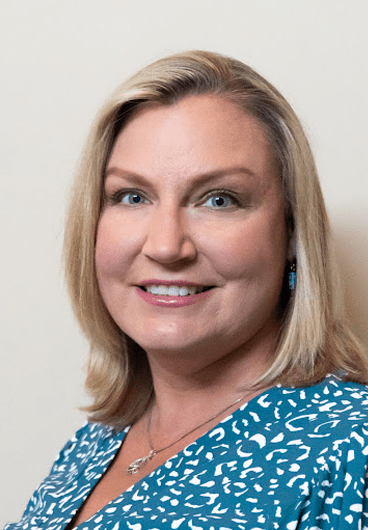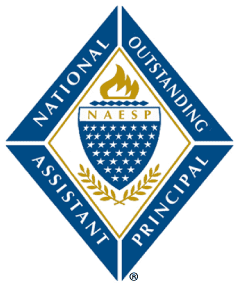
Michele Hewlett
Chickasaw Elementary School
Chickasaw, Alabama
mhewlett@chickasawschools.com
Best Practices
1) Whole Child Initiatives: Chickasaw City Schools and a local charter school are the only schools in Alabama that are currently receiving funds to implement a Full Service Community School grant. The grant allows us to focus on the whole child, and their families, increase community relations, and provide healthcare. The grant provides personnel that our district would otherwise not be able to afford. At the elementary school, we have an advocate counselor who assists with the academic advisory, facilitating the communication of resources in our community to students in need of mental health services, and/or other supports. We have a teacher dedicated to behavior and academic intervention. She assists with preventing and supporting students who struggle with appropriate behaviors. The grant provides an instructional coach who works on increasing student achievement and teacher efficacy, as well as a Full Service Community Grant Coordinator who supervises the three individuals mentioned above. The coordinator works diligently to bring together community members and school personnel to increase stakeholder involvement. At mid-year, we hosted five parent and community meetings to involve the stakeholders in the academic needs, attendance growth, and physical health of our children and community. We also held meetings to educate parents of current third-graders on the requirements of the Alabama Literacy Act, and how it affects their children, and to explain the importance of bringing kindergarten and first grade students to school each day on time. Our data shows that historically we have high number of chronically absent students in these two grades. We held another meeting to gauge interest in an athletics program for our elementary students. This junior athletic program will keep our students playing sports in their community with their neighbors. Our system is also in the process of opening a health center that will be housed on school system property for the health needs of our students through a partnership with a local agency.
Attending community events and board of education meetings is an integral part of the school administrator’s role. The students, teachers, community members, and stakeholders appreciate the community involvement efforts of the school administrators at events. By attending events in the city, board meetings, and service opportunities, we show the focus of Chickasaw Elementary School is on the whole child and our community. We work closely with the Cops for Kids Program as well to ensure that our children have healthy relationships with police officers. Our School Resource Officer recently traveled to Washington, D.C., with our administrative team to accept a Promising Practices Award from Character.org. This award was granted for showing a caring school community. The goal for Chickasaw Elementary School is to become a National School of Character with Character.org. One way we are working to achieve this goal is by participating in the Hope Academy Institute, founded in Alabama, to professionally develop school staff in character education.
2) Teacher and Staff Development: Improving instruction is at the forefront of every decision made at Chickasaw Elementary School. We have an Alabama Reading Initiative (ARI) Coach and a dedicated Alabama Math Science Technology Initiative (AMSTI) Math Coach. We also have a dedicated Instructional Coach who assists with planning, implementing, and providing feedback on lessons in all areas of academics. Two of our coaches recently attended the National Learning Forward Conference in Washington, D.C. There, they learned multiple coaching strategies and received training in areas of coaching adult learners to improve instruction.
Having a dedicated intervention time for students daily has been a successful practice. Each grade level has a dedicated intervention time to focus on those skills that may require additional instruction. Students receive small group instruction from the general education teacher for Tier 2 instruction. Our school employs three retired certified teachers who work with our students in the areas of reading and math for Tier 3 instruction. Our behavior intervention teacher and school guidance counselor work with our students who are in need of Tier 3 behavior interventions.
Our school implements the P3 Initiative in Kindergarten and first grade. Both the principal and I are certified P3 administrators. Our teachers are involved in a professional learning community that focuses on P3 principles and Conscious Discipline. The P3 model uses developmentally appropriate practices with early childhood students. Gold Standards are used to document mastery of standards taught along with the Alabama Kindergarten Standards. In an effort to assist with instruction and data collection, we have a certified teacher and a paraprofessional in each kindergarten and first grade classroom. To my knowledge, this is unique in the state of Alabama. Having a lower adult-to-student ratio is assisting with the quality of instruction provided and classroom management. We use Conscious Discipline as an avenue to assist students with self-regulation. Conscious Discipline fosters a loving family environment in each of the kindergarten and first grade classes. We have witnessed, over the past four years of having pre-K-3, that our students are problem-solvers and free thinkers, and we have seen significant academic growth in students who remain with us from kindergarten to first grade.
Chickasaw Elementary has offered Summer Literacy Camp for the past four years. We have included Numeracy Camp in the summer program for the past two years. I have been the administrator for the camps each year. Our students participate in hands-on, research-based activities throughout the summer through the Literacy and Numeracy Camps. Our ARI Reading Specialist and our AMSTI Math Coach work collaboratively with me to make the camps productive and engaging. We strive to not only meet the requirements of the Literacy and Numeracy Acts but also to exceed them. We do this by inviting all grade levels to participate in our camps. Our camps consistently exceed the required amount of hours to best serve our community. The camps have shown growth overall each year we have had the camps in place.


